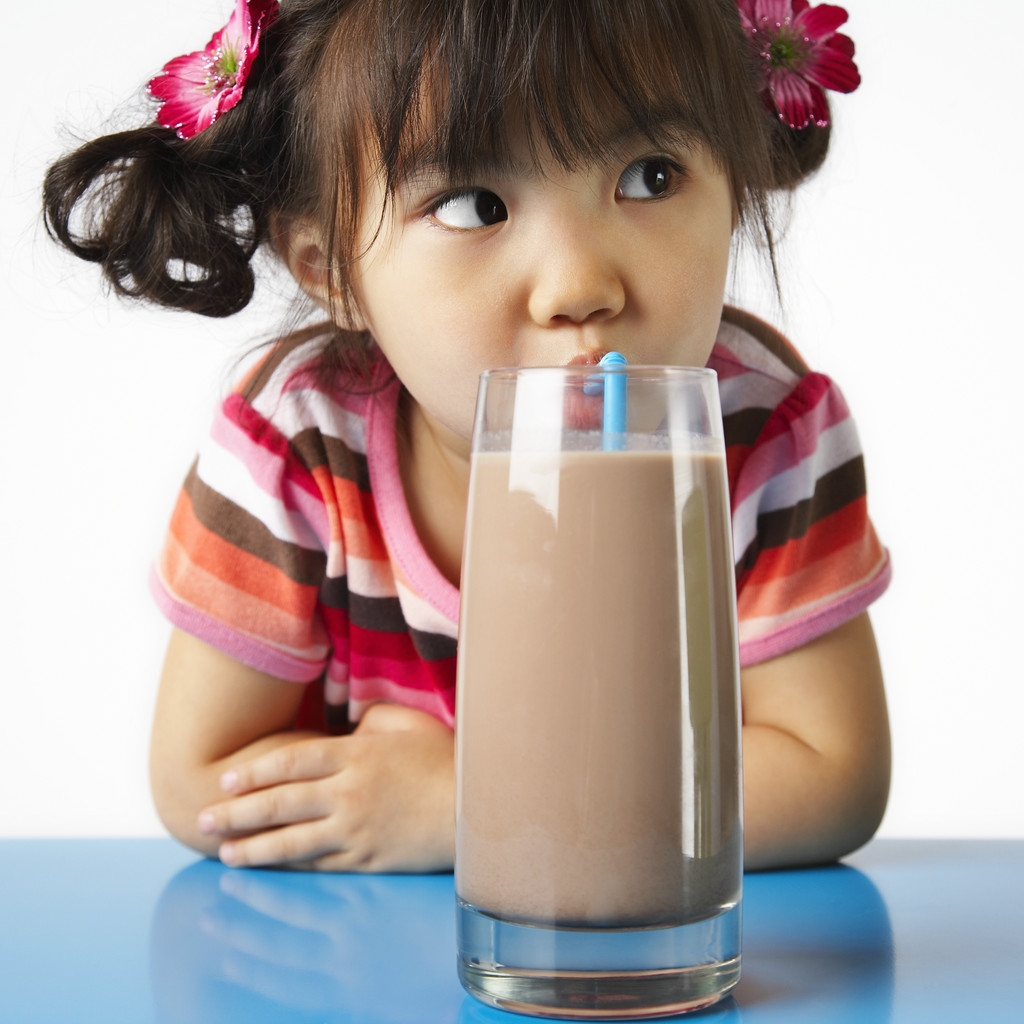If you have a child with feeding issues, failure to thrive, or just poor muscle mass/weight gain, you know the agony of trying to add a few pounds. Most pediatricians recommend supplement drinks such as Pediasure, Ensure, or Boost, to keep children from dropping too low on the growth charts. These drinks are expensive, sugary, and full of synthetic vitamins that may or may not be easily absorbed and bio-available. Did I mention they’re expensive?
Here’s a list of the ingredients in an 8oz Pediasure:
Water, Sugar (Sucrose), Corn Maltodextrin, Milk Protein Concentrate, High Oleic Safflower Oil, Soy Oil, Whey Protein Concentrate, Medium-Chain Triglycerides. Less than 0.5% of the Following: Soy Protein Isolate, Short-Chain Fructooligosaccharides, Natural & Artificial Flavors, Cellulose Gel, Magnesium Phosphate, Potassium Citrate, Potassium Chloride, Calcium Phosphate, Calcium Carbonate, Potassium Phosphate, Salt (Sodium Chloride), Cellulose Gum, Choline Chloride, Ascorbic Acid, Soy Lecithin, Monoglycerides, C. Cohnii Oil, m-Inositol, Potassium Hydroxide, Carrageenan, Taurine, Ferrous Sulfate, dl-Alpha-Tocopheryl Acetate, L-Carnitine, Zinc Sulfate, Calcium Pantothenate, Niacinamide, Manganese Sulfate, Thiamine Chloride Hydrochloride, Pyridoxine Hydrochloride, Riboflavin, Cupric Sulfate, Vitamin A Palmitate, Folic Acid, Chromium Chloride, Biotin, Potassium Iodide, Sodium Selenate, Sodium Molybdate, Phylloquinone, Cyanocobalamin, and Vitamin D3
There are also 18g of sugar per 8 oz. More alarmingly, if you happen to have a child that is allergic to soy or milk protein, then these drinks will not work for you.
Have I let my child suck down Boost after Boost in the hospital after major surgery? Yes. This post is not a judgment on people’s choices. I would, however, like to give some suggestions if you are concerned your child needs more calories but would prefer them to be consuming less “supplement” drinks and more real, whole foods.
The best solution that we’ve found is to make smoothies. Not just ice and fruit smoothies; calorie dense, healthy fat, protein enriched smoothies.
Here is a list of ingredients. You can pick and choose based on your child’s food tolerances and what you have around the house:
Liquid:
Skip juices that may be too sugary and cause diarrhea. Yogurt and Kefir* and great for the pro-biotic benefits. Use one cup of liquids total.
Coconut water
Coconut milk (full fat or light)
Milk
Plain Yogurt
Plain Kefir*
Protein Boost:
2 Tbs. Peanut Butter (or a nut butter of your choice)
1/4 cup nuts
Extra Fat:
1 Tbs. Cold Pressed Virgin Coconut Oil (make sure it’s not super processed)
1 Avocado (may need to add a dab of honey if your fruit is not sweet enough to cover the taste)
Fruit:
This is really your choice. If you want a colder drink, use frozen fruit.
2/3 cup total strawberries, mango, blueberries, etc.
1 whole banana
BLEND!
I know you’re a smart parent because you’re already online doing research. With a little thoughtfulness, it’s easy to find a blend that meets your child’s nutritional needs. You may even find other super foods to add that are not listed here. For example, I buy raw cocoa beans and throw a couple of them in my own smoothie because they are a great source of iron.
I’m thankful for modern medicines and technology, but I also love it when I can feed my children healthy foods that are still in the form that God created them!
Have any tips to share? WHAT DO YOU PUT IN YOUR SMOOTHIE?
*Kefir is a fermented milk drink, similar to a drinkable yoghurt. You can buy it already made, or you can buy starter grains which you drop in a glass of milk and let stand for 24 hours. The grains can then be strained and reused. (Annie Beth has found it at Harris Teeter, Earth Fare and Trader Joe’s.)



Great! We have corn and bananna allergies as well as peanuts and have found that the following mixtures in the Vita-Mix stored in 1 C. Ball Jars are working:
Cooked organic meats (lamb, beef, chicken, turkey, and duck) – We rotate them – cooked with lots or onions, garlic, and tallow.
Tallow, about 4 tablespoons per batch
Bone broth & Veggie Broth (alternate or use both), about 1 cup – eye to measure so it isn’t too liquidy
Herbamare or Celtic Sea Salt
Cooked veggies: squash prepared before hand, broccolli, greens (cooked) or in the vegetable broth
When pulling from the freezer, we heat it up stovetop (otherwise the broth turns to MSG in the microwave, add about 1.5 T. organic cold pressed olive oil and 1 enzyme and feed it to our son. He is almost three and has had failure to thrive since being about 6 months old. We have seen 1.5 lb. weight gain over the past weel and a half and no eczema thus far as he has many allergies/intollerances.
The favorite smoothie here is a combo of 1 avocado, 1 raw, frozen chicken liver, kefir and sour cream, 6 raw quail eggs, acorn squash, honey and coconut oil. I don’t really measure anything, just eyeball and taste when it’s done. 🙂 It makes a little over 32oz and my 3 littles share it for breakfast.
All I know is a frozen banana makes all the difference for us! 🙂 It makes a smoothie so creamy!
thank you for posting this! just came home from my daughter’s 15 month appt – she’s 5% off the charts and i cringed when told to give her pediasure everyday! thankful for your tips – we’ll be making smoothies like crazy around here now 🙂
Glad to be of help! It’s sad that pediasure is “nutrition replacement” when there is very little real nutrition in it.
Thanks for this info. My 19 mo, old is failure to thrive being only 19 pounds. He didn’t really like pediasure but I was happy about that as the ingredient list looked like it came out of a chem lab report. I have been disappointed that he now sips a little at a time over a day…so my search for a replacement led me here. Thanks again for a better way to feed my kid the best possible way!
My child is tube fed so her shake doesn’t have to taste good. I need to give her about 12 ounces a day at 30 calories an ounce. It also needs to be smooth enough to run thru a small tube. She us allergic to bananas…just to keep me on my toes.
Any suggestions?
Maybe sub in dates instead of the banana? Though I’m not sure what the quantity should be.
Dates are pretty sweet. I would try one to start with. I looked up and ounce to ounce comparison, and dates have over five times the amount of sugar. http://skipthepie.org/fruits-and-fruit-juices/bananas-raw/compared-to/dates-medjool/
My son was diagnosed ftt. I was doing pediasmart. Which is a little better then pediasure. Thing is I have to syringe his foods. He’s 20 months and I’m not sure how much at one sitting is too much. I’m trying to avoid refined sugars and soy. He just refuses to eat. Any tips? Even for boosting breastmilk fat!? I’m doing bone broths. Butter. Liver egg yolks etc for him. Quinoa carrots blanched spinich. We do speech therapy when we can afford it. How much fat can his system take at a feeding. Thx so much.
Any suggestions in how to make a peanut butter and chocolate one?
You would add a couple tablespoons of cocoa and a tablespoon or two of peanut butter, depending on taste. This could be added to whatever milk base you wanted, and if you want to avoid sweeteners such as sugar or honey, you could just use a banana to sweeten.
Almond butter is probably safer than peanut butter and has more protein I believe.
My daughter’s favorite smooth is 1 banana, 1/2 apple
1/2 plain yogurt and almond milk. Sometimes I add 1/2 avocado and in the summer I like to add coplle tablespoons of frozen yogurt.
Do you know what the general nutritional facts for these drinks are?
I have been doing:
1 cup whole milk
2 tbl PB
1 tbl coconut oil
1 whole banana
3/4 cup blueberries or blackberries or lead or strawberries or a mixture!
I don’t really know the general nutrition facts off hand. When I want to try to figure them out, I sometimes use this website, http://nutritiondata.self.com/, and I look up each ingredient individually. It’s a bit laborious, but it’s do-able.